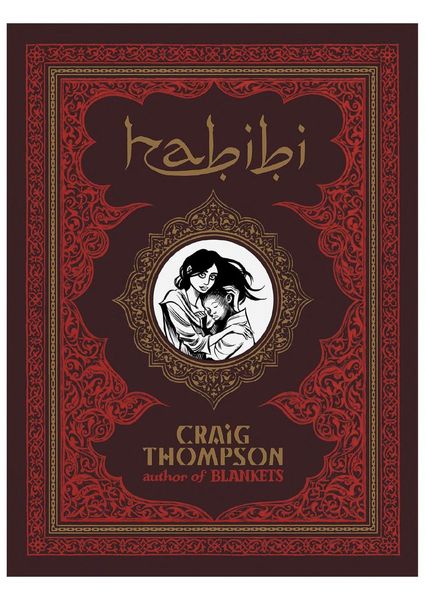
حبيبي
A graphic tale by the author of Blankets follows the relationship between two refugee child slaves who are thrown together by circumstance and who struggle to make a place for themselves in a world fueled by fear and vice, in a visual parable that touches on themes of cultural divisions and the shared heritage of Christianity and Islam.
Reviews
Sarah Sammis@pussreboots
Yue@mintmiss88
MG@marilink
Jantien @joan_illusion
shorouq ali@tiamat
Nelson Zagalo@nzagalo
Wouter ter Keurs@wouter
Maggie Gordon@maggieg
Natalia Hernandez@chubidubi
b.andherbooks@bandherbooks
Mahasin S Ameen@fivefootsmall
Jem Sugnet@jsgnt
Bruno Costa Teixeira@brunoctxa
Rifqaiza Pravangesta@rifqaiza
A kabel @me0wme0w
Izyan Suhaila@thatizyan
farah farooq@farahjww
Malavika Kumar@mlvk
Andrea Pozo@andrepora
Daniel Figueiredo@obio
Darda Nella@dnella
Bo Smet@bosmet
Zoe Stricker@zstrick
Ivar K. @ivar